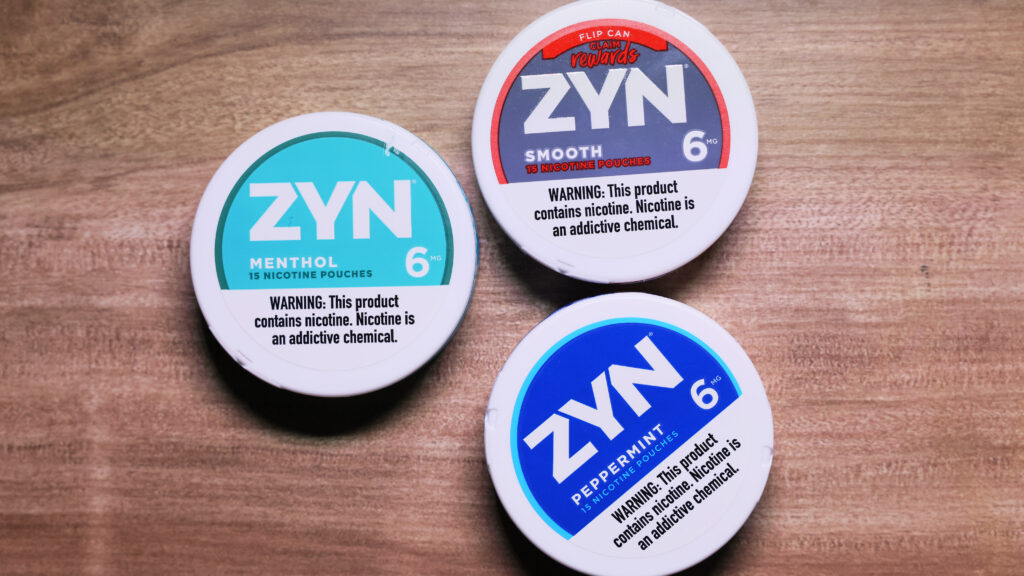As Zyn nicotine pouches gained viral fame via TikTok and other social media platforms in recent months, public health organizations and politicians have been raising concerns about their potential appeal to young people. Now the Food and Drug Administration has decided Zyn products can remain on the market.
The agency on Thursday authorized the marketing of 20 Zyn products, saying that its review of evidence suggested their benefits outweigh the risks to public health.
advertisement
“The data show that these nicotine pouch products meet that bar by benefiting adults who use cigarettes and/or smokeless tobacco products and completely switch to these products,” which pose lower risks of cancer and other serious diseases, Matthew Farrelly, director of the Office of Science in the FDA’s Center for Tobacco Products, said in a statement.
The announcement comes one day after the FDA announced an ambitious proposal to reduce nicotine in cigarettes to nonaddictive levels, with the goal of helping more Americans to quit or cut back on smoking. The incoming Trump administration will decide whether to finalize that rule.
In Thursday’s announcement, the agency noted that the use of nicotine products among people under 21 is low, citing a 2024 National Youth Tobacco Survey that found 1.8% of middle- and high-school students said they use nicotine pouches. But it said it will keep a close eye on uptake and marketing of the product among young people.
advertisement
The move is already proving controversial, with the nonprofit Campaign for Tobacco-Free Kids saying the FDA had “set a dangerous precedent that puts the nation’s kids at risk.”
“The FDA’s decision is deeply troubling given the extensive scientific evidence that flavored tobacco products appeal to kids and the fact that nicotine pouches were the only category of tobacco product that saw an increase in youth use last year,” the group’s head, Yolonda C. Richardson, said in a statement. “The FDA is sanctioning a flavored tobacco product that is already increasing in popularity with kids and repeating the mistakes it made with Juul that resulted in the youth e-cigarette epidemic.”
But Cliff Douglas, head of the group Global Action to End Smoking, which champions e-cigarettes and other tobacco alternatives as a harm-reduction strategy, greeted the decision as “a watershed moment in the effort to accelerate the ending of the tobacco epidemic.”
“Such products, offered with appropriate restrictions on marketing, substantially reduce risk while offering adults who smoke an option to switch away from lethal cigarettes,” Douglas said in a statement. The nonprofit was funded by Philip Morris International until Douglas took over in 2023.
Zyn, which is owned by Philip Morris International, sells pouches that come in flavors like cinnamon, citrus, and coffee and which contain either 3 milligrams or 6 mg of nicotine, a chemical that’s known to be addictive and has been linked to cardiovascular and respiratory issues. Its competitors include ON! (owned by tobacco giant Altria) and Velo (owned by British American Tobacco).
Sales of nicotine pouches in the U.S. rose a whopping 641% in between 2019 and 2022. A 2023 report by the advocacy group Campaign for Tobacco-Free Kids warned about marketing of nicotine pouches and other alternative tobacco products on social media, and called on global governments to ban domestic and cross-border marketing of the products.
advertisement
While nicotine pouches do not contain shredded tobacco leaf, a 2024 paper published in the journal Tobacco Control reviewed 44 pouches and found that 26 contained trace amounts of carcinogenic tobacco-specific nitrosamines. The FDA noted that there is no safe tobacco product, and the American Lung Association has said that nicotine pouches don’t help enough people quit smoking, but rather encourage “switching to another tobacco/nicotine product sold by the tobacco industry to sustain lifelong customers.”
Zyn and the retailers who sell the product have run afoul of regulators in recent years. The FDA in April of last year warned 119 retailers to stop selling Zyn to underage people, and the company was ordered to pay $1.2 million last year for violating Washington, D.C.’s smokeless tobacco ban.
As part of the new authorization, the FDA said that it will take steps to make sure that radio, TV, and digital advertisements for pouches are targeted to people over age 21, and that Zyn had agreed not to hire actors younger than age 35 in their ads.
STAT’s coverage of chronic health issues is supported by a grant from Bloomberg Philanthropies. Our financial supporters are not involved in any decisions about our journalism.

